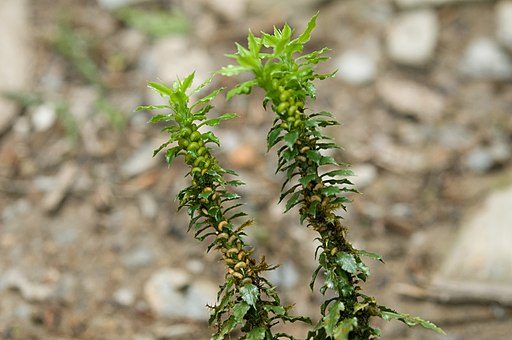“Natural vs Synthetic” Huperzine A
A case study on Huperzine A featured in the June 2020 issue of Nutraceuticals World shows how a plant-based nutraceutical can be vulnerable to adulteration through the use of fossil-derived synthetics. Huperzine A is a supplement ingredient extracted from the clubmoss Huperzia serrata. The case study used two methods to detect ingredient adulteration — High Performance Liquid Chromatography (HPLC) and Carbon-14 analysis.
Huperzine A is a widely used ingredient in the nutraceuticals industry for a variety of health purposes, such as memory enhancement. The global Huperzine A market size is forecasted to expand at a compound annual growth rate of 6.68% from 2019 to 2024, according to Gen Consulting Company. Due to the expensive cost of natural Huperzine A, the plant extract is vulnerable to ingredient adulteration. To detect adulteration of Huperzine A, quality control departments often submit samples to undergo analyses for ingredient verification.

Image credit: Cheng-Tao Lin (licensed under CC BY 4.0)
Huperzine A Case Study
Three different brands of Huperzine A supplements were subjected to both HPLC fingerprinting, performed at Nanjing Hup Chemical laboratory, and carbon-14 testing, done by Beta Analytic.
HPLC is a quality control method used to separate, identify, and quantify different components in a mixture. Carbon-14 testing, on the other hand, differentiates between plant-based and fossil fuel-derived ingredients, and therefore can confirm the presence of petrochemical-derived synthetics.
While results from HPLC fingerprinting demonstrated that the purity of Huperzine A in each supplement sample was more than 98%, the Carbon-14 results confirmed the presence of petrochemical-derived components in the analyzed materials. Employing carbon-14 analysis to Huperzine A is a key step for quality assurance and quality control.
More information can be found at https://www.nutraceuticalsworld.com/issues/2020-06-01/view_features/detecting-adulteration-huperzine-a-case-study/
DISCLAIMER: The case study was a collaboration between Gao Yu (Beta Analytic) and Xin Ma (Nanjing Hup Chemical Co., Ltd.)
Disclaimer: This video is hosted in a third-party site and may contain advertising.
Excerpt from Beta Analytic’s presentation during the webinar “Stewarding Responsible Growth by Protecting the Integrity of the Curcumin Category”
This entry was posted on Wednesday, June 10th, 2020 and is filed under Beta Analytic Case Studies, Natural Product Testing, Supplement Carbon-14 Testing .